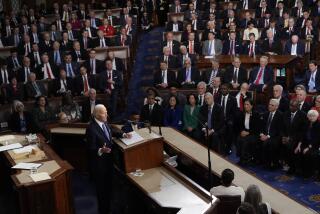Several Factors Blamed for Soaring Gas Prices
As California gasoline prices matched record highs Tuesday, oil industry experts warned that the state’s fuel market was short on competition and supplies and possibly vulnerable to manipulation.
The assessment came amid an unusual off-season surge in the cost of gasoline. The average gallon of self-serve regular climbed 12.9 cents over the last week to $2.327 -- tying the California record set at the end of May. The average has moved up more than 23 cents in two weeks, according to the Energy Information Administration.
“I don’t see any real end in sight for the next 30 days,” said Will Woods, executive director of Automotive Trade Organizations of California, a Tustin-based trade group for independent service station owners.
The primary culprit, experts said, was the incredible rise in the cost of a barrel of crude oil, which typically accounts for about half of the cost of a gallon of gasoline.
Bolstered by ongoing concerns about worldwide supplies, the price for November delivery of light sweet crude briefly rose above $54 a barrel Tuesday, ending at $52.51, down $1.13 from Monday’s record close of $53.64 on the New York Mercantile Exchange.
Traders are worried about possible disruptions in oil-rich regions such as Iraq, Nigeria and Russia. They also have taken note of ongoing problems in the Gulf of Mexico, where producers have yet to recover from the ravaging winds and 60-foot waves of Hurricane Ivan.
San Ramon, Calif.-based ChevronTexaco Corp. said Tuesday that the hurricane flipped and crushed a platform that was specially built to withstand a 500-year storm, defined as having 50-foot waves.
Oil prices alone don’t account for all of the sticker shock in California, where gasoline prices have soared more steeply than in the rest of the nation.
The average gallon of self-serve regular gasoline in the state now costs 33 cents more than the national average of $1.993, according to government figures released Tuesday and based on a survey taken Monday.
The U.S. average increased 5.5 cents in the last week but is still below the peak of $2.064 a gallon reached May 24. (Adjusted for inflation, gasoline was more expensive in 1981 when the U.S. and California averages hit about $3 a gallon.)
On Tuesday, some experts cited another factor for California’s expensive fuel: the power of oil companies to legally increase prices because the state’s unique cleaner-burning gasoline is produced by few refineries outside the state.
“As much as supply and demand is basic economics, so is market power,” said Severin Borenstein, director of the University of California Energy Institute, speaking at a workshop sponsored by the California Energy Commission.
“And it is without question that the production of some of these companies -- pretty much all of the major producers of California gasoline -- affect price in this market,” Borenstein, said.
The proof, he added, is that when even one refinery goes down unexpectedly, gasoline prices in California jump. He said the situation created an incentive to hold back production to boost prices.
“These guys are out to make money. And that’s OK,” Borenstein said. “But pretending that’s not what they’re doing is not productive toward getting at treating the real issues.”
Drew Laughlin, a Houston-based industry consultant, agreed: “The conditions exist so that certain behaviors can take place and be harmful to the general good -- not by any deliberate scheming -- but by incentives and good trading” of oil and gasoline.
That notion was met with vehement disagreement from Philip Verleger Jr., a senior fellow at the Institute for International Economics.
Verleger, whose opinion was backed by the oil industry’s Western States Petroleum Assn., argued that no companies in California hold sufficient market share to force movements in the price of gasoline.
Instead, California consumers are the victims of traditional market forces, he said, including the worldwide tightening of crude oil stockpiles and the difficulty of attracting imports to the state.






